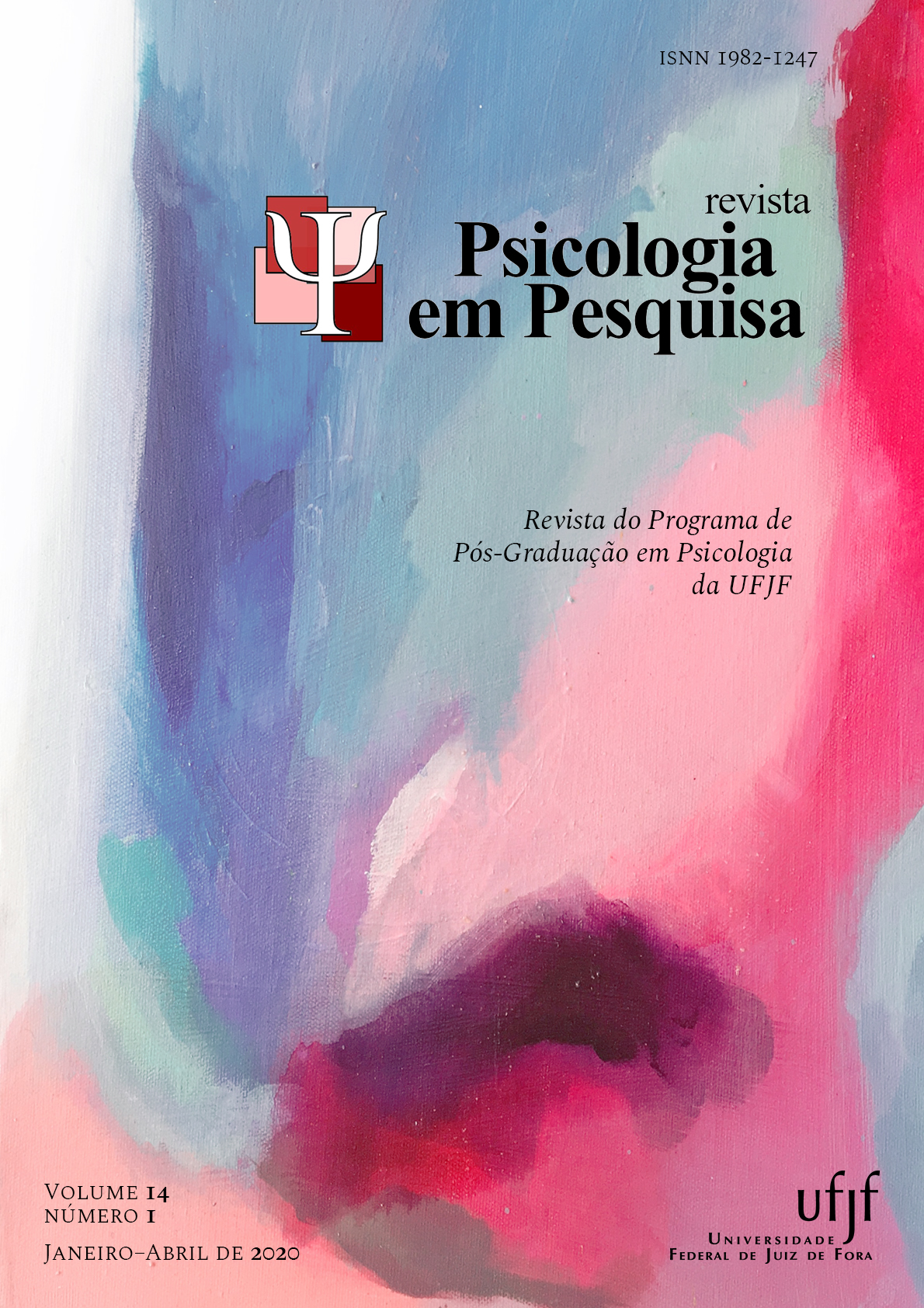The winnicottian true self and the question of identity
DOI:
https://doi.org/10.34019/1982-1247.2020.v14.27731Keywords:
Psychoanalytic theory, Postmodernity, SelfAbstract
The notion of identity has been critically addressed by many theories inspired by the Freudian decentering of the subject, aligned to the so-called post-structuralism. In this paper, we investigate the winnicottian true self, proposing an alternative to the positioning of Winnicott as an antagonist of the deconstruction operated by the post-structuralist approach to identities. Associated to the notion of the incommunicable core self as an instance unavailable to the relationship with objective objects, the true self emerges both as a representative of a primordial experience of indeterminacy, in which the distinction between I and other are fundamentally excluded, and also as an instance resistant to the identitarian determination, characteristic of the relationship with objective objects.
Downloads
References
Bulamah, L., & Kupermann, D. (2014). Notas para uma história de discriminação no movimento psicanalítico. Estudos Da Língua(Gem), 11(1), 147–164.
Freud, S. (1996). Três ensaios sobre a teoria da sexualidade (1905). In Obras psicológicas completas de Sigmund Freud: edição standard brasileira, vol. VII. Rio de Janeiro: Imago. Original publiado em 1905.
Freud, S. (2010). O Inconsciente. In Obras completas volume 12. São Paulo: Companhia das Letras. Original publicado em 1915.
Frosh, S. (2010). Psychoanalysis outside the clinic: interventions in psychosocial studies. New York: Palgrave Macmillan.
Fulgencio, L. (2011). A importância da noção de experiência no pensamento de D. Winnicott. Estudos de Psicologia (Campinas), 28(1), 57–64. https://doi.org/http://dx.doi.org/10.1590/S0103-166X2011000100006
Giddens, A. (1990). The consequences of modernity. Cambridge: Polity.
Giddens, A. (1991). Modernity and self-identity: self and society in the late modern age. Cambridge: Polity.
Guntrip, H. (1968). Schizoid phenomena, object relations and the self. New York: International Universitites Press.
Henderson, D. (2012). Apophatic elements in the theory and practice of psychoanalysis: Pseudo-Dyonisius and C. G. Jung. Goldsmiths, University of London.
Honneth, A. (2015). Luta por reconhecimento: a gramática moral dos conflitos sociais. São Paulo: Editora 34.
Jean-François Lyotard. (2008). A condição pós-moderna (Trad. Ricardo Correa Barbosa, Ed.). Rio de Janeiro: José Olympio.
Jr., B. B., & Ortega, F. (2007). Winnicott e seus interlocutores. Rio de Janeiro: Relume Dumará.
Karlsson, G. (2000). The question of truth claims in psychoanalysis. The Scandinavian Psychoanalytic Review, 23(1), 3–24.
Klee, P. (2015). Paul Klee. New York: Parkstone International.
Laing, R. D. (1973). The divided self. New York: Penguin Books.
Osmo, A., & Kupermann, D. (2012). Confusão de línguas, trauma e hospitalidade em Sándor Ferenczi. Psicologia Em Estudo, 17(2), 329–339.
Phillips, A. (2007). Winnicott. New York: Penguin Books.
Rodman, R. (2003). Winnicott: life and work. Cambridge: Perseus Books.
Scarfone, D. (2005). Laplanche and Winnicott meet... and survive. In Leslie Caldwell (Ed.), Sex and sexuality: winnicottian perspectives (pp. 33–53). London: Karnac.
Whitebook, J. (1992). Reflections on the autonomous individual and the decentered subject. American Imago, 49(1), 97–116.
Williams, J. (2005). Pós-estruturalismo. Petrópolos: Vozes.
Winnicott, D. W. (1987). Primitive emotional development (1945). In Through paediatrics to psychoanalysis: collected papers. London: Karnac.
Winnicott, D. W. (1987). Psychoses and child care. In Through paediatrics to psychoanalysis: collected papers. London: Karnac. Original publicado em 1952.
Winnicott, D. W. (1990). Communicating and not communicating leading to a study of certain opposites. In The maturational processes and the facilitating environment. London: Karnac. Original publicado em 1963.
Winnicott, D. W. (1990). Ego distortion in terms of true and false self. In The maturational processes and the facilitating environment. London: Karnac. Original publicado em 1960.
Winnicott, D. W. (1990). Natureza humana. Rio de Janeiro: Imago.
Winnicott, D. W. (1990). The capacity to be alone. In The maturational processes and the facilitating environment. London: Karnac. Original publicado em 1958.
Winnicott, D. W. (1996). Primary introduction to external reality. In Thinking about children. London: Karnac. Original publicado em 1948.
Winnicott, D. W. (2005). Creativity and its origins. In Playing and reality. London: Routledge.
Winnicott, D. W. (2005). Playing: a theoretical statement. In Playing and reality. New York: Routledge. Original publicado em 1967.
Winnicott, D. W. (2005). Playing: creative activity and the search for the self. In Playing and reality. London: Routledge. Original publicado em 1971
Winnicott, D. W. (2005). The location of cultural experience. In Playing and reality. London: Routledge. Original publicado em 1967.
Winnicott, D. W. (2005). The use of an object and relating through identifications. In Playing and reality. New York: Routledge. Original publicado em 1969.
Winnicott, D. W. (2007). Birth memories, birth trauma, and anxiety. In Collected papers: through paediatrics to psychoanalysis. London: Karnac. Original publicado em 1949.















